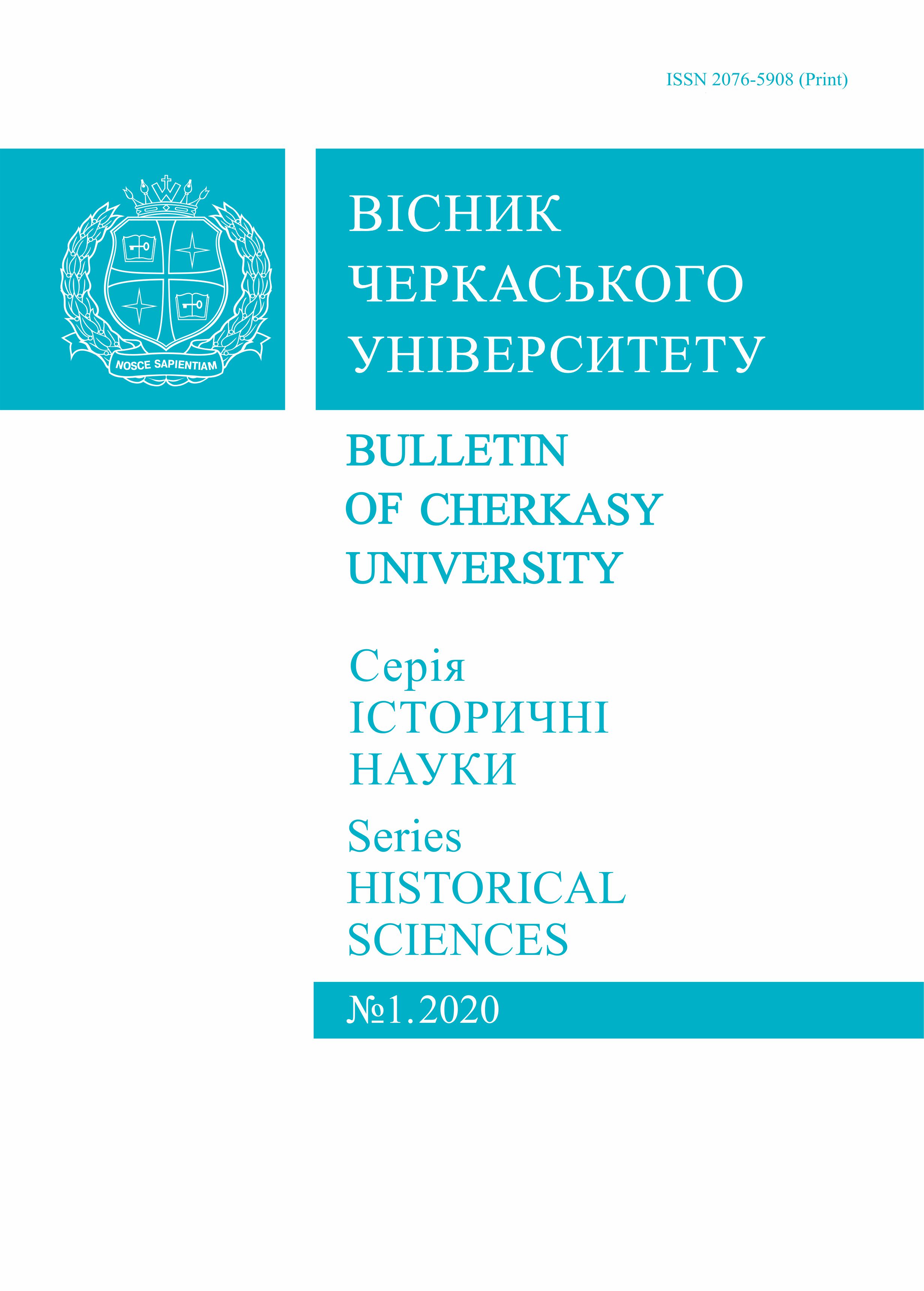Borys Lazarevsky about the everyday life of emigration in Paris (by the materials of the Diary «Ma Vie», 1927–1929)
##plugins.themes.bootstrap3.article.main##
Анотація
Abstract. Introduction. Researching of the personal, social and creative life of the representatives of Ukrainian emigration of the 20–30s of the twentieth century, manifestations of their mental traits, psychological and behavioral responses afford us an opportunity to understand the context of the relevant historical period and surroundings. The diary notes of writers, scholars, military and priests are important sources that researchers rely on. The subject of the proposed article is The Paris Diary of Borys Lazarevsky, who was a Russian and Ukrainian fiction writer, a son of a famous Ukrainian historian Olexander Lazarevsky (1834–1902). The author’s notes as a projection of the Parisian expatriate life are relevant in the context of these issues, including everything “denoted by a Ukrainian marker”: reflections on Ukraine, assessments of certain events of life, culture and people related to them.
Purpose. The purpose of the article is to introduce the contents of The Paris Diary of B. Lazarevsky for 1927–1929 to the Ukrainian historiographic space. B. Lazarevsky kept diary notes throughout his life. There is a prevailing assertion that there are 60 volumes of such entries. The emigration period is represented only by the volume from 1924 to 1925, which is kept in the Russian State Archive of Literature and Art (Moscow) and an exemplar for 1927–1929. The last one from the time of its founding is still kept in the private collection of the family of I. Goncharenko.
Results. B. Lazarevskyj was a well-known figure in both Russian and Ukrainian immigrant communities. His name is often recorded in the Russian-speaking secular chronicle of Paris next to the names of the famous figures of culture. Thanks to his charisma, literary talent, public activity, personal relations B. Lazarevskyj received material assistance from the President and the Government of Czechoslovakia until 1930. He lived poorly, but he loved Paris: streets and parks, theatres and cinemas, transport and the press, he adored the Parisian lifestyle because of its publicity, a crowd of beautiful and uninhibited women, its leisure and communication.
Originality. For the first time the content of the diary entries for 1927 – 1929 by B. Lazarevsky was partly analyzed in contemporary Ukrainian historiography.
Conclusion. Borys Lazarevsky’s Diary for 1927–1929 (both his own manuscripts and his correspondence) is a valuable and important original source, the study, analysis and publication of the content of which will supplement contemporary Ukrainian historiography in the researches of Ukrainian emigration of the 20–30s of the twentieth century. We consider that the development of following areas are very promising: B. Lazarevsky’s scientific and literary surroundings, his collaboration with the representatives of Ukrainian and Russian Paris emigration, the publication (for the first time) of their autographs; B. Lazarevsky’s assessment of contemporary political, social and cultural changes (for example, events in Ukraine – from the UPR to the USSR and the RSFSR) and others. Sympathies and antipathies, subjective perception of people and events are always the most interesting when they are dealing with a bright and an extraordinary personality, and that is exactly our point of view about Borys Lazarevsky. Private, personal and creative are interlaced and integral in this personality.
##plugins.themes.bootstrap3.article.details##
Посилання
Honcharenko, I. (1966). Unpublished letters of A. I. Kuprin. Raduha, 4, pp. 151–154. [in Russian]
Honcharenko, O. (2015). How the Ukrainians fought during the Russo-Japanese War]. Literaturna Ukraina, 19.03. 13. [in Ukrainian]
Honcharenko, O. (2014). Meeting with Oleksandr Koshyts. Ukrainska muzychna hazeta, 2 (92), p. 12. [in Ukrainian]
Zverev A. Everyday life of Russian literary Paris 1920–1940] (n.d.). Available at: https://www.e-reading-lib.com/bookreader.php/1046574/Zverev_-_Povsednevnaya_zhizn_russkogo_ literaturnogo_Parizha._1920-1940.html [Accessed 06.03.2020]. [in Russian]
Lazarevskyj A. Ma vie. – Rukopys, 1927 – 1929. – 400 ark. Pryvatnyi arkhiv S. I. Berehovoho. [in Russian]
Savchenko V. (2019) Symon Petlyura. Kyiv: Nora druk, 469 p. [in Ukrainian]
Vidnyanskyj S. V. (2009) Masaryk Tomash-Garrig. Available at: http://www.history.org.ua/?termin=Masaryk_T_G [Accessed 06.03.2020]. [in Ukrainian]
Shumikhin, S. (1998). «Wait, I’ll come, I’ll show you roulette ... » Unknown letters of A. Kuprin, found in Romania, are published after 53 years. Knyzhnoe obozrenie «Ex lsbris NH» Available at: http://liv.piramidin.com/belas/Kuprin/pisma.htm [Accessed 06.03.2020]. [in Russian]
Shumikhin, S. (2001). Russian Prague, Russian Nice, Russian Paris: From the diary of Boris Lazarevskyj. Diaspora: novye materialy, Vol. 1, pp. 645–714. [in Russian]
Volkova I. (2007). Our catering in Paris. Rodina, 1, pp. 90–97. [in Russian]
Lazarevskij B. (1928). Voice of the Homeland: New Stories]. Paris: Imprimerie L. Beresniak, 156. [in Russian]
Lazarevskij B. (1928). Greh Parizha. [Sin of Paris]. Riga: Didkovskij, 181. [in Russian]

